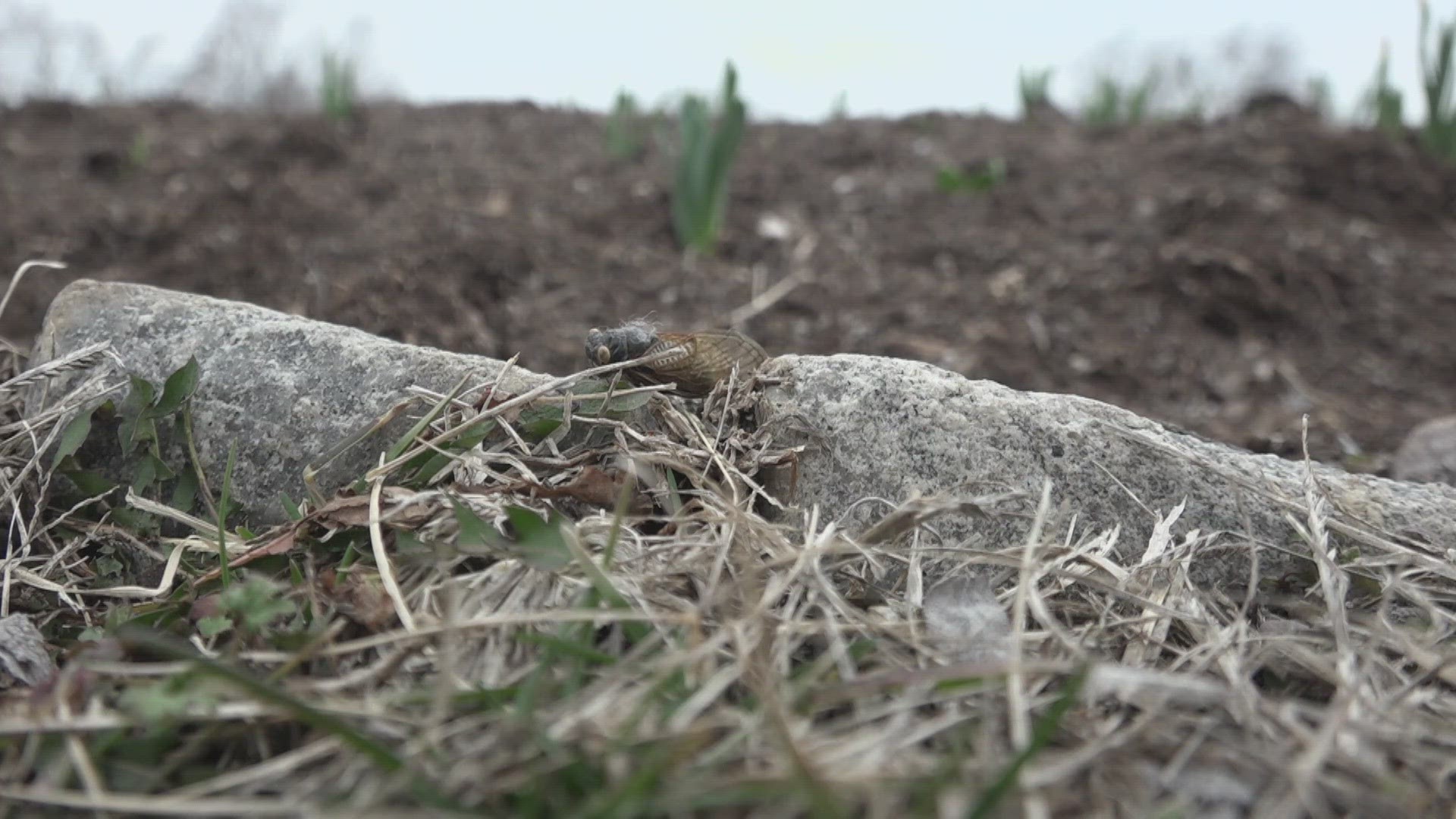ST. LOUIS — Millions of cicadas will emerge for tree roots across St. Louis and the Midwest at large this spring, and experts at the Missouri Botanical Garden can barely contain their excitement.
"This is an incredibly exciting moment for entomologists and really anyone who appreciates biology and nature," said Senior Entomologist Tad Yankoski with the garden's butterfly house. "You will see them everywhere."
A periodical cicada brood will emerge in St. Louis and most of Missouri this year for the first time in 13 years. There isn't an exact time for when the emergence will happen, but they're expected to crawl out once soil temperatures hit the mid-60s. Cooler weather will delay them, but inevitably warm weather will bring them out.
"The periodical cicadas we are going to get this year are a little bit smaller, they're orange and black and there will be billions of them and combined they will be very loud and very hard to miss," Yankoski said.
Excitement has been bursting at the seams in Nicole Pruess, the butterfly house's invertebrate keeper, for years. She traveled to Ohio for its periodical cicada reemergence in 2021 for both research and pleasure.
"It was really cool, they were kind of all over the place," Pruess said. "I did get out of the car when we got to the hotel and they were flying around and I'm like 'This is amazing,' and one of them landed on me and I was like 'This is so cool.'"
The bugs' loud noise may be an annoyance to some, but they're otherwise not a threat to humans. They can, however, make a little mess every once in a while.
"The cicadas feed on tree sap ... feed on so much of it and they are kind of up in the trees. Sometimes they will poop and it kind of rains down on you a little bit," Pruess said.
Rather than pigeon poop, cicada poop is comparable to sugar water and is harmless to humans.
Top St. Louis headlines
Get the latest news and details throughout the St. Louis area from 5 On Your Side broadcasts here.

